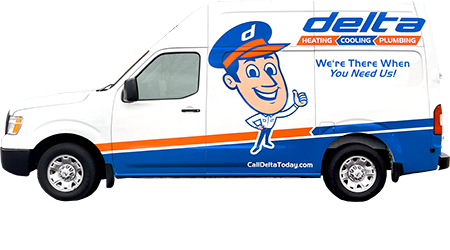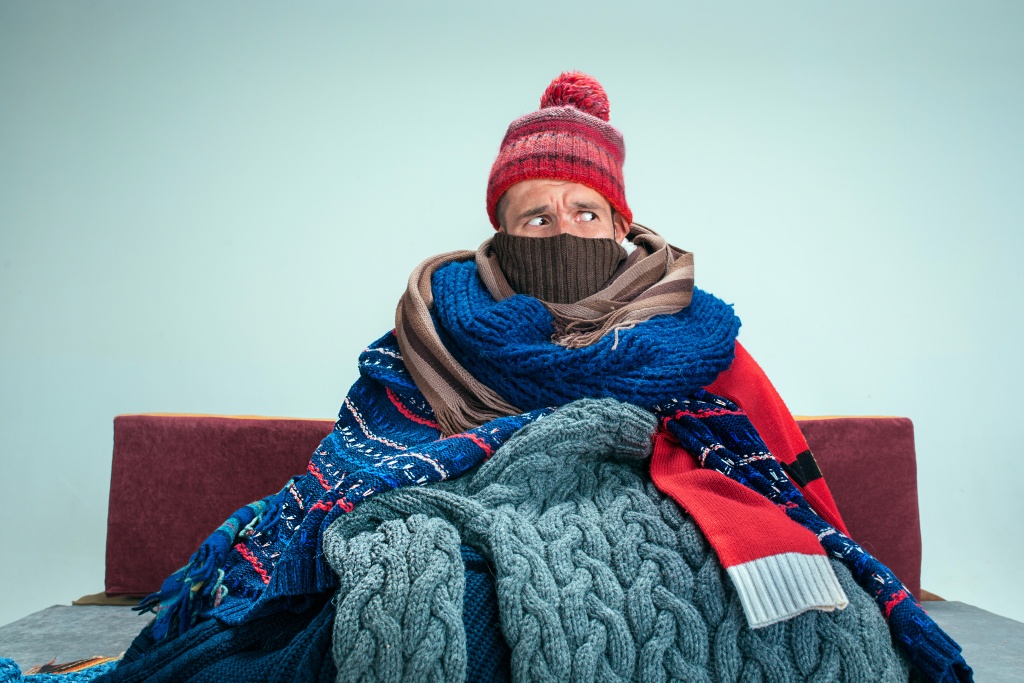Heat pump systems are popular because they offer efficient, compact operation for both heating and cooling.
Much like a refrigerator, heat pumps use electricity to move heat from a cool space to a warm space.
Since heat pumps move heat rather than generate heat, they provide excellent comfort much more efficiently than the operation of a traditional central heating system.
As long as the components can keep the refrigerant colder than the outdoor air, it can produce indoor heat.
However, when outside temperatures dip below 30 degrees, a heat pump system begins to lose efficiency and uses a supplementary heat source, such as a gas furnace or electric heat strips to maintain a comfortable temperature.
But what if it gets really cold outside and your heat pump doesn’t seem to be heating well?
You could have one of these issues with your equipment.
Contact us at Delta Heating and Heating if you have concerns about your heating system.
Your Auxiliary heat strips may be undersized or not working at all
During extreme cold temperatures, a heat pump system uses heat strips to compensate when the system cannot maintain a set temperature.
An auxiliary heat strip consists of metal coils which use electricity to generate heat, however, they use more energy than the rest of the heat pump equipment.
That is why they should only be activated when outdoor temperatures dip below freezing.
When initiated, it appears on your thermostat as “auxiliary heat,” or “emergency heat.”
The size of your home and the further north you live determine the heat strip size needed for optimum comfort.
If you turn on the auxiliary strips but the system is not blowing warm air, the heat strips could be damaged.
If you turn on the auxiliary strips and you feel warm air but the thermostat is not satisfying, you could have undersized heat strips.
The number of windows, ceiling height, and sun exposure are all factors when properly sizing auxiliary heat for a heat pump system.
Also, insufficient insulation or weatherstripping can affect the efficiency of heat strips.
If you have an issue with your heat strips, it is best to consult your certified HVAC service company like Delta Heating, Cooling & Plumbing in Raleigh to inspect your system and make recommendations.
Undersized Heat Pump Systems in the Triangle
An undersized system is not large enough to provide optimum comfort in your home.
The unit may never shut off causing your electric power bill to soar.
A properly sized heat pump also helps control humidity, even in the wintertime.
A consistent humidity level inside the home prevents condensation on windows. Excessive condensation on windows can result in mold issues.
A load calculation will measure the heat gain and loss of a structure.
A professional HVAC installer will measure the heat gain and loss of your home by doing a load calculation.
Roofing materials, windows, doors, insulation, appliances, and other heat sources will be considered when determining the proper size unit for your specific needs.
Older less efficient units may not keep your Raleigh home comfortable?
Since a heat pump functions as an air-conditioner during the summer and reverses the refrigeration cycle to pump heat into your home during the winter, you want to make sure your system is operating at optimum levels all year long.
The average life expectancy of a heat pump system is about 12 years.
With steady use and a proper maintenance schedule, the equipment will eventually start to wear down.
By keeping a close eye on your energy bills, you should be able to identify if your system is losing efficiency.
Whether you are in the market for a new system or you’re hoping to keep your existing equipment working as efficiently as possible, consider calling an licensed HVAC service company.
Delta Heating, Cooling & Plumbing is your local expert and can answer any questions.

